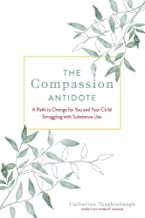
When my daughter emerged from recovery, I felt the relief of being able to let go of the stress and fear I had been feeling. The changes she'd made in her life lifted a weight off my shoulders.
I realized that I was now looking at a person who could overcome challenges, learn from life lessons, and have the discipline to stay on track. I felt a shift and the changes in her, yet there was the whisper of fear. As time went on, I found I could put those fears away and embrace the new possibilities of life.
Good News!
While you may have heard that addiction is a hopeless condition, the good news is that most people do find their way to recovery from substance use and overcome other problems getting in the way of living a healthy life.
Recovery for many means letting go of the devastating misuse of alcohol or other drugs that have derailed their lives.
When a loved one emerges from a substance use problem, families have many options. For example, some live with parents or other family members. Others live in a recovery house or transitional living. I have seen people change their lives and thrive against all odds. Many different paths can lead to living a healthier life. We need to embrace them all and support what works for our loved ones.
According to John Kelly, PhD, "In 2016, my colleagues and I surveyed another nationally representative sample. We discovered that the national prevalence of those in recovery is approximately 9.1 percent or 22.35 million U.S. adults. Nearly one in 10 persons in the U.S. has recovered or is recovering from a substance use disorder.”
Kelly goes on to say,” The statistics are tremendously encouraging about recovery. Still, it's important to recognize that the recovery change process is complicated. The journey to remission can be bumpy, and it can take a long time."
Yet, people's lives get better after working through a substance use problem. People in recovery from addiction will tell you that. Most who do recover go on to get a job, go back to school or give back to their community by volunteering. The more years a person has in recovery, the more their life improves.
Any positive change can bring excitement, coupled with the pride around the hard work that it took your loved one to make the change.
Change can be challenging. The temptation to fall back into old ways is always there. Yet as time goes on, the change process feels more comfortable and automatic. New habits become ingrained and that helps prevent relapse.
Families Recover
We are all recovering from something, and each family member can find their unique path to leading a better life, supporting their loved one's change, or learning new approaches to life for themselves.
For instance, my recovery was about letting go of focusing all my attention on our family's issues. I needed to learn to find myself again and regain the balance in my life.
As time went on, I put things into place that helped me, such as exercise, writing, yoga, and keeping friends and family close.
The more you support yourself and your loved one in this delicate process, the better. Family members can be a source of encouragement and hope for their loved ones. That support can be unique to your family, as everyone's recovery path is different.
Whatever we are waiting for – peace of mind, contentment, grace, the inner awareness of simple abundance – it will surely come to us, but only when we are ready to receive it with an open and grateful heart. ~ Sarah Ban Breathnach
For anyone making a change, it takes time to get back to themselves. The exciting part is that your loved ones will be able to access the many possibilities for their lives as they move forward. It will be rewarding to observe your family's new direction.
And with any change comes the need for healing, compassion, and understanding.
It's crucial to stay connected to your loved one. Everyone needs a support system, especially when you are making a change in your life.
A support system will give you the mental and emotional nourishment to stay on track each day.
Everyone feels better when communication is open and positive. When people feel better, they tend to do better. Having a clear understanding of how others are doing and what you can do to help lays the foundation for change.
That includes noticing the hard work your loved one is doing to maintain their recovery, keeping your emotions in check, and taking time to listen without judgment.
Our brains start to look for the positive when we approach life, looking for possibilities rather than getting caught up in worrying about what could happen.
The shift in thinking can be contagious. The more you can support and encourage your family members, the better off your loved one will be.
Everyone will benefit if each family member can focus on themselves and how they can contribute in a helpful way.
You can stay connected to your loved one. You can be a positive influence and take care of yourself.
Finally, having a sense of gratitude for what is going well in your life also lights the flame of possibilities. Gratitude helps you notice what is going well in your life and keeps your mind on a positive track.
Recovery is possible for anyone. Know there is hope and that change is often right around the corner.
Cathy Taughinbaugh is a Certified Parent and Life Coach, and the author of The Compassion Antidote: A Path to Change for You and Your Child Struggling with Substance Use. You can find out more about Cathy’s work and book at her site: https://cathytaughinbaugh.com/

 RSS Feed
RSS Feed